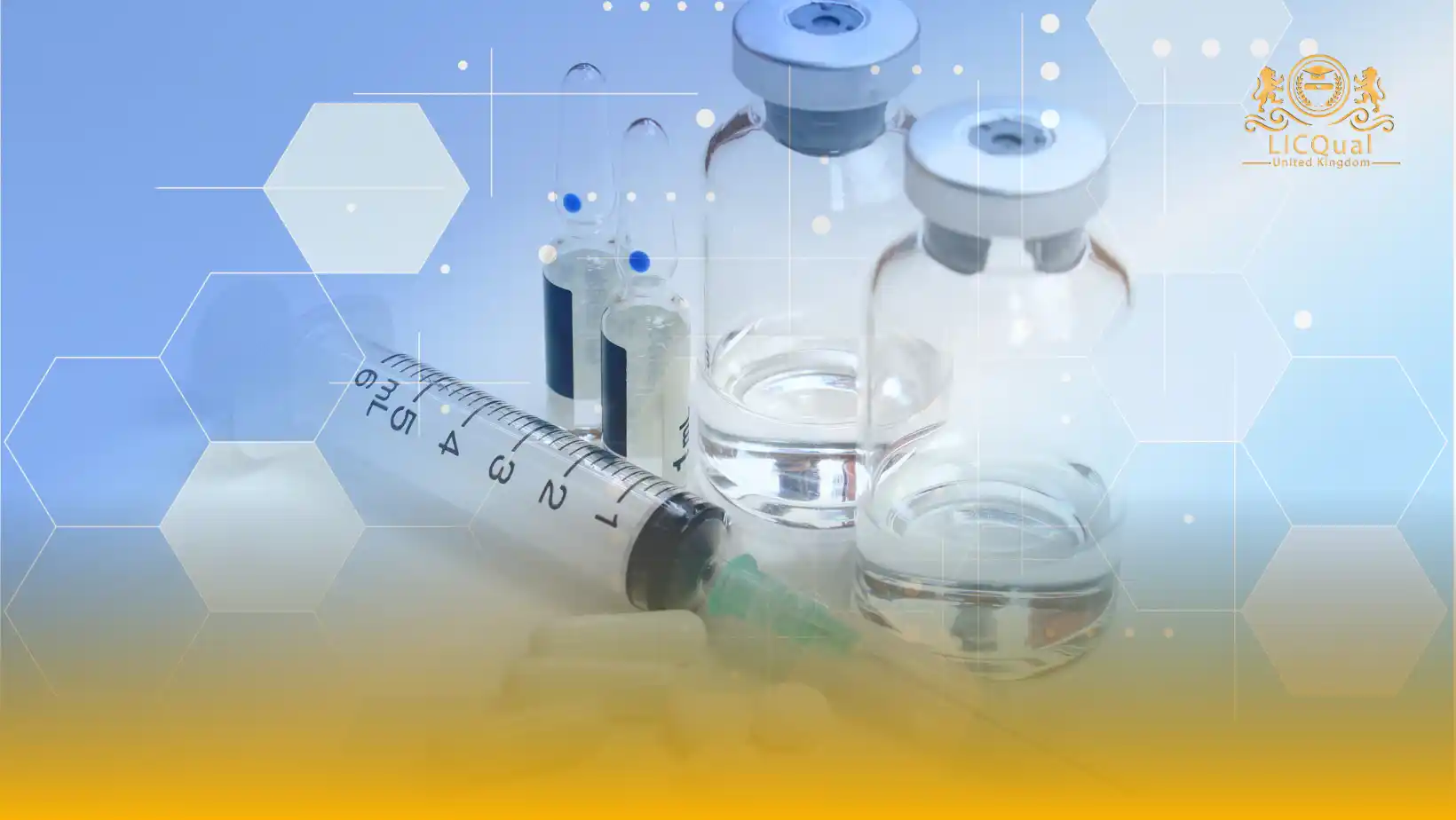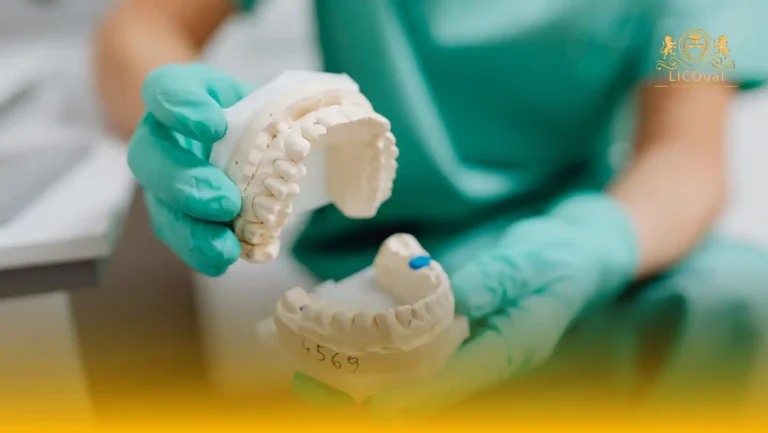The LICQual Level 3 Certificate in Infectious Diseases and Tropical Medicine (Cert IDTM) is a specialised qualification designed for healthcare and related professionals who are seeking to advance their expertise in infectious diseases and tropical medicine. This qualification is ideal for learners who wish to enhance their career prospects, deepen their professional knowledge, and contribute to their Continuing Professional Development (CPD). It is not intended for beginners, but rather for those with existing experience and a strong interest in the field.
Learners enrolling in this course will gain a thorough understanding of the diagnosis, management, and prevention of infectious diseases, including tropical conditions that are increasingly relevant in a globalised world. The curriculum has been carefully structured to ensure that learners acquire both theoretical knowledge and practical insights that can be applied in professional settings.
To maintain the highest standards of training and learner achievement, centres delivering this qualification are required to have competent and qualified staff, along with access to all essential materials and resources. This ensures that learners receive a rich, interactive, and supportive learning experience that equips them for professional growth.
Whether you are a healthcare practitioner, medical researcher, or public health professional, this Level 3 Certificate provides a robust platform for career advancement, skill enhancement, and professional credibility. By the end of the course, learners will be well-prepared to contribute effectively to their workplaces, stay current with emerging trends in infectious diseases, and uphold best practices in patient care and disease management.
Course Overview
Qualification Title
LICQual Level 3 Certificate in Infectious Diseases and Tropical Medicine (Cert IDTM)
Total Units
6
Total Credits
24
GLH
120
Qualification #
LICQ2200854
Qualification Specification
To enroll in the LICQual Level 3 Certificate in Infectious Diseases and Tropical Medicine (Cert IDTM), applicants must meet the following criteria:
|
Qualification# |
Unit Title |
Credits |
GLH |
|---|---|---|---|
|
LICQ2200854-1 |
Introduction to Infectious Diseases |
4 |
20 |
|
LICQ2200854-2 |
Epidemiology and Disease Surveillance |
4 |
20 |
|
LICQ2200854-3 |
Tropical Medicine and Parasitology |
4 |
20 |
|
LICQ2200854-4 |
Immunology and Host Defence Mechanisms |
4 |
20 |
|
LICQ2200854-5 |
Clinical Management of Infectious Diseases |
4 |
20 |
|
LICQ2200854-6 |
Public Health and Global Disease Control |
4 |
20 |
By the end of this course, learners will be able to:
Unit 1: Introduction to Infectious Diseases
Learning Outcomes:
- Understand the basic concepts and classifications of infectious diseases
- Identify common pathogens, their characteristics, and modes of transmission
- Recognise the global impact of infectious diseases on public health
- Analyse factors contributing to the spread of infectious diseases in different populations
Unit 2: Epidemiology and Disease Surveillance
Learning Outcomes:
- Explain the principles of epidemiology and its role in disease prevention and control
- Apply disease surveillance methods to monitor and report infections
- Investigate outbreaks and public health emergencies using epidemiological data
- Evaluate the effectiveness of global and national disease control strategies
Unit 3: Tropical Medicine and Parasitology
Learning Outcomes:
- Understand the aetiology, symptoms, and life cycles of key tropical and parasitic diseases
- Apply knowledge of diagnosis, treatment, and prevention for tropical infections
- Analyse the epidemiological trends of tropical diseases globally
- Demonstrate awareness of risk factors and prevention strategies in endemic regions
Unit 4: Immunology and Host Defence Mechanisms
Learning Outcomes:
- Describe the structure and function of the human immune system
- Understand host-pathogen interactions and immune response mechanisms
- Evaluate the role of vaccination, immunotherapy, and immune enhancement in disease prevention
- Apply immunological principles to clinical and public health scenarios
Unit 5: Clinical Management of Infectious Diseases
Learning Outcomes:
- Demonstrate knowledge of diagnostic techniques and clinical management protocols for infectious diseases
- Apply infection control measures in healthcare and community settings
- Analyse case studies to determine appropriate treatment strategies
- Understand ethical and professional considerations in patient care and disease management
Unit 6: Public Health and Global Disease Control
Learning Outcomes:
- Understand the role of public health policies and global health organisations in disease prevention
- Evaluate strategies for outbreak response, prevention, and control
- Analyse global health challenges, including emerging and re-emerging infectious diseases
- Apply knowledge of ethical, cultural, and social considerations in global disease control initiatives
The LICQual Level 3 Certificate in Infectious Diseases and Tropical Medicine (Cert IDTM) is designed for healthcare professionals who want to strengthen their expertise in communicable diseases, tropical infections, and global health. This Infectious Diseases and Tropical Medicine Level 3 course is ideal for doctors, nurses, allied health professionals, and educators who are seeking CPD accreditation, career progression, and an internationally recognized qualification. It is not intended for beginners but for those already working in healthcare who want to expand their specialist knowledge and clinical skills.
1. Medical Doctors and Physicians
- Enhance clinical expertise in diagnosing and managing infectious diseases
- Gain advanced knowledge of tropical medicine and global health challenges
- Improve patient outcomes with evidence‑based treatment approaches
- Strengthen diagnostic and clinical assessment skills
- Earn a globally recognized infectious diseases certification
2. Nurses and Allied Health Professionals
- Build confidence in supporting infectious disease and tropical medicine care
- Learn patient‑centered approaches to managing communicable conditions
- Expand scope of practice with specialized training in tropical medicine
- Fulfill continuing professional development (CPD) requirements
- Increase employability in hospitals, clinics, and community health programs
3. Public Health Specialists
- Deepen understanding of epidemiology and disease prevention strategies
- Gain skills to manage outbreaks and public health emergencies
- Strengthen expertise in vaccination and infection control programs
- Contribute to global health initiatives and policy development
- Broaden career opportunities in international health organizations
4. Laboratory and Diagnostic Professionals
- Enhance skills in identifying infectious agents and tropical pathogens
- Learn advanced diagnostic techniques for communicable diseases
- Improve accuracy in laboratory testing and reporting
- Gain CPD credits while advancing technical expertise
- Strengthen career profile in diagnostic and research laboratories
5. Healthcare Educators and Trainers
- Integrate infectious diseases and tropical medicine into teaching programs
- Enhance credibility with an international certification
- Support students with up‑to‑date clinical and public health insights
- Strengthen academic and professional profiles
- Contribute to evidence‑based education in global health
6. Community and Global Health Workers
- Address the growing burden of infectious and tropical diseases
- Learn preventive strategies for vector‑borne and communicable illnesses
- Support community awareness and health education programs
- Gain skills to manage common tropical conditions in primary care
- Strengthen role in public health and disease prevention initiatives
7. International Healthcare Professionals
- Obtain a globally recognized infectious diseases and tropical medicine certificate
- Align with UK and international healthcare standards
- Improve career mobility across countries and regions
- Gain competitive advantage in global healthcare markets
- Access structured, flexible learning designed for busy professionals
To ensure high-quality training and successful learner outcomes, centres offering this qualification must meet the following requirements:
- Qualified and Competent Staff: Centres must employ experienced trainers and assessors who possess relevant professional qualifications in healthcare, infectious diseases, or tropical medicine. Staff should have a proven track record in delivering Level 3 healthcare programmes.
- Access to Learning Resources: Centres must provide learners with up-to-date course materials, textbooks, reference documents, and access to digital learning platforms. Resources should support both theoretical understanding and practical application.
- Teaching and Learning Facilities: Centres should have suitable classrooms, laboratory facilities, and demonstration areas to facilitate interactive and practical learning experiences.
- Assessment Arrangements: Centres must implement robust assessment procedures, including formative and summative assessments, to ensure learners achieve all required learning outcomes.
- Health and Safety Compliance: Centres must maintain safe learning environments, adhering to local regulations and guidelines, particularly for laboratory or clinical practical sessions.
- Quality Assurance Systems: Centres should have effective internal quality assurance mechanisms, including monitoring of teaching standards, learner feedback, and continuous improvement strategies.
- Support for Learners: Centres must provide guidance and support services, including access to tutors, mentoring, and resources for independent study to ensure learner success.
By meeting these requirements, centres can deliver a professional, credible, and internationally recognised training programme that equips learners with the skills and knowledge needed for careers in infectious diseases, tropical medicine, and global health.
Assessment and Verification
All units within this qualification are subject to internal assessment by the approved centre and external verification by LICQual. The qualification follows a criterion-referenced assessment approach, ensuring that learners meet all specified learning outcomes.
To achieve a ‘Pass’ in any unit, learners must provide valid, sufficient, and authentic evidence demonstrating their attainment of all learning outcomes and compliance with the prescribed assessment criteria. The Assessor is responsible for evaluating the evidence and determining whether the learner has successfully met the required standards.
Assessors must maintain a clear and comprehensive audit trail, documenting the basis for their assessment decisions to ensure transparency, consistency, and compliance with quality assurance requirements.







